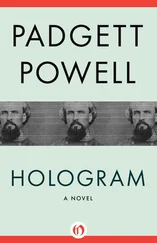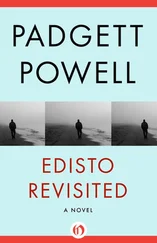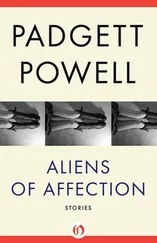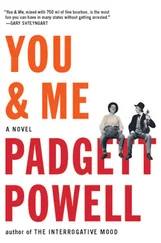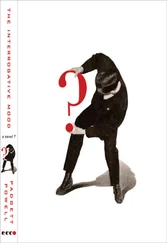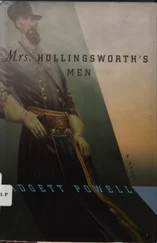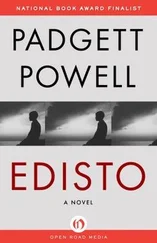MR. NEFARIOUS SMILED, AND only when smiling was he able to do anything else. When smiling he could also do nothing, but when not smiling he could do nothing but not smile. He smiled as he scissored tiny stray threads from his clothes, smiled marveling at how many stray threads there were, almost… well, enough that you wondered how many non-stray threads were in position holding the garment together rather than … straying off, hanging off and out of seams like … flopping around on his clothes, loose cannons on the deck of haberdashery; he smiled and snipped and snipped and there was no end, logically — he kept cutting, smiling, cut a pair of pants to pieces.
He smiled phoning a girl who was in no sense his girlfriend, or anyone’s girlfriend; in fact, if you asked anyone who knew her, say even a tall woodsman type of fellow in his woodshop or on his horse how to get to this girl’s house, he was supposed to know because she had been supposed to be his (the woodsman’s) girlfriend once but of course wasn’t, only in her mind was she, for two minutes, he (the woodsman) said, “We went out four times and she wanted to get married,” and if Mr. Nefarious asked how to get to her house of the woodsman who had declined the fifth date on grounds of risk, the woodsman would say, Sure you want to go to her house? And Mr. Nefarious would smile and say, Not her house, I’m looking for that girl lives near her house, and actually both Mr. Nefarious and the woodsman would be smiling at this point, but Mr. Nefarious would smile longer, which would irritate the woodsman, and decide to phone the woman instead of risk going to her house — the tall practical fellow who could rip trees in his spare time was right.
So phoning her he smiled but when she did not answer he smiled and hung up.
Tossing a tennis ball for his dog he could smile for a quarter of an hour, all the dog and the ball could take, the dog fat and the ball a tennis ball, made for clay courts, made for concrete courts, not made for ivory and saliva courts.
He could look at bilge water and smile.
He smiled rarely at his mother.
The girl whose house the woodsman recommended they avoid reminded him of his mother, when she, the girl, smiled. When his mother smiled, she, his mother, reminded him of his childhood. When it came to his childhood there was no smiling. It seemed to him an era as humanly distant and crude as the Cro-Magnon’s. If he said something stank in this era of cave dwelling, his mother corrected him: it didn’t stink, it smelled. Okay, he’d assent, something smells, Mom, upon which she’d instruct him: “Look on your upper lip !” with a superior sneering tone that stopped him in his childhood tracks. That’s the way it was in this life? Nothing stank, it smelled, and it was always, if you smelled it, on your own lip. Even though it was his own, this motherhood struck him as odd.
Once, he had invited a girl to swim in the family pool after school, and they had spent a fine afternoon of it together, the girl barely constrained by her two-piece and the young Mr. Nefarious dog-paddling his nose into her breasts, occasionally sinking from the cumbersome weight and bulk of his teenage tumescence, rescued each time by the girl, who breathed life back into him with a peck of a kiss and released him to paddle upstream some more. When his mother uncovered this tryst she prohibited any more on the grounds that they had been unchaperoned (obviously, the young Mr. Nefarious thought to himself), and that, therefore, the neighbors would talk.
Everywhere they went, they sued all the neighbors first thing, but in this one instance his mother had a point. They had not yet sued any. Behind them was the mother of a hoodlum who lived in juvenile detention centers, to the side of them the people who’d sold them their house and held the mortgage and had a severely retarded child, across the street a millionaire who lived abroad, next to him ever-changing renters, next to them a man who had sired thirteen children out of his one, lame, eighty-pound wife. There was no one to sue. But they would talk. To whom, he could not guess.
The young Mr. Nefarious stood there that day following his pool tryst, still marginally priapic and limping slightly from his afternoon of unrelieved water ballet, ready to assent to this absurd prohibition because he did not know if his seminiferous system could take another four-hour throttling, when his mother pulled out another stop on the organ of her rectitude. “I want you to write me,” she intoned, smoking a cigarette and having her first cocktail, “an essay on integrity.”
“On what?”
“On IN TEG RIT TEE. Do you know what integrity is?”
“Think so,” the young Mr. Nefarious managed. “If not, I’ll look it up.”
“Good.”
“Do you think it’s in the World Book?”
He cannot remember if he actually made the last crack, only hope, and he does not remember looking up the word in the dictionary, but thinks he did, aiming to kill twenty-five words by copying the definition into his “essay,” which he did not — this much is for sure — ever write. Nor did his mother ask for it. It was clear to Mr. Nefarious, if not to her, that the matter of integrity between them was extinct.
When he thought of the girl whom the woodsman recommended they all avoid, smiling and looking like his mother, he suffered a wicked thrill and then shuddered and hung up the phone before she could possibly answer it. This was a dangerous moment for Mr. Nefarious. The next thought was invariably this: everyone looks something like his, Mr. Nefarious’s, mother, if you get right down to it, including himself. How could you go about life avoiding everyone on earth, and yourself, because humans resemble each other? The long-term answer to this question had worked itself out over time without his knowing it: dogs were safe, as were all people who demonstrated a total want of, or an aggressive dislike for, integrity. Those were your playmates in this tough world: dogs and people with shit on their upper lip. Mr. Nefarious had developed his nearly incessant smile by attempting to look at his lip.
At trees no smiling unless there was axing, and then the smiling was worked quickly into a determined slit-of-purpose mouth. But spiritually still a smile.
He smiled writing letters to people, overintimate, unsolicited revelations of himself, and smiled retrieving from the mailbox mail-order catalogues mostly from fancy gardening-tool concerns, in each of which was an outdoor bench costing not less than $500. To X, a woman who certainly had never been in any sense his girlfriend but who had been for damned sure somebody’s girlfriend, namely Charles’s, to whom she had been securely married for fifteen years or more, he wrote, “I do not customarily”—here he smiled—“write love letters,” and then he saved the day, which made his smile dim, or curl, ever so rancidly, by of course not declaring his love for her, which did not really exist anyway (he smiled: where, with whom, on whom, did it exist?), saved the day by just letting the letter drift off into a rather lame and nonspecific lament about his … not depression, just downness, all of which was designed — he smiled — to suggest he did love her, about 23 percent. That was enough love and at the correct angle to come at a married woman with better sense than to listen to garbage — she could certainly not entertain 25 percent, a full one-quarter throttle — and Mr. Nefarious smiled, sealed it up, stamped it with two stamps (one was extra so he could lick twice), packed it off in his country mailbox, raising the red flag, and wondered on the way back from the mailbox what it would be like to have — it bordered on not smiling to think of it — a $598.95 teak bench sitting out in the rain, the rain, and then the sun.
Читать дальше


